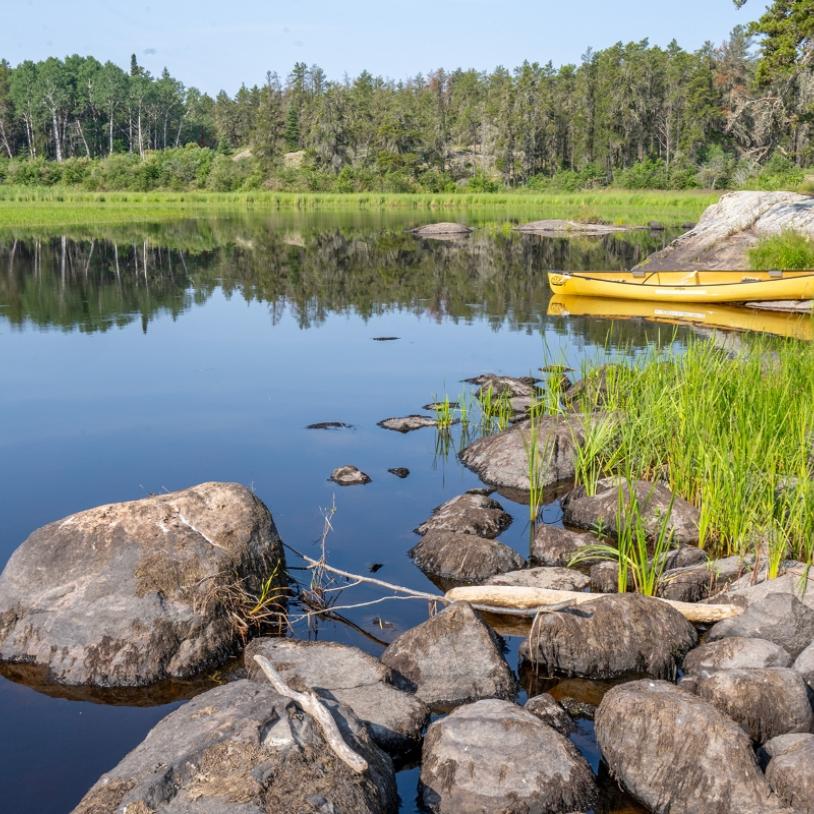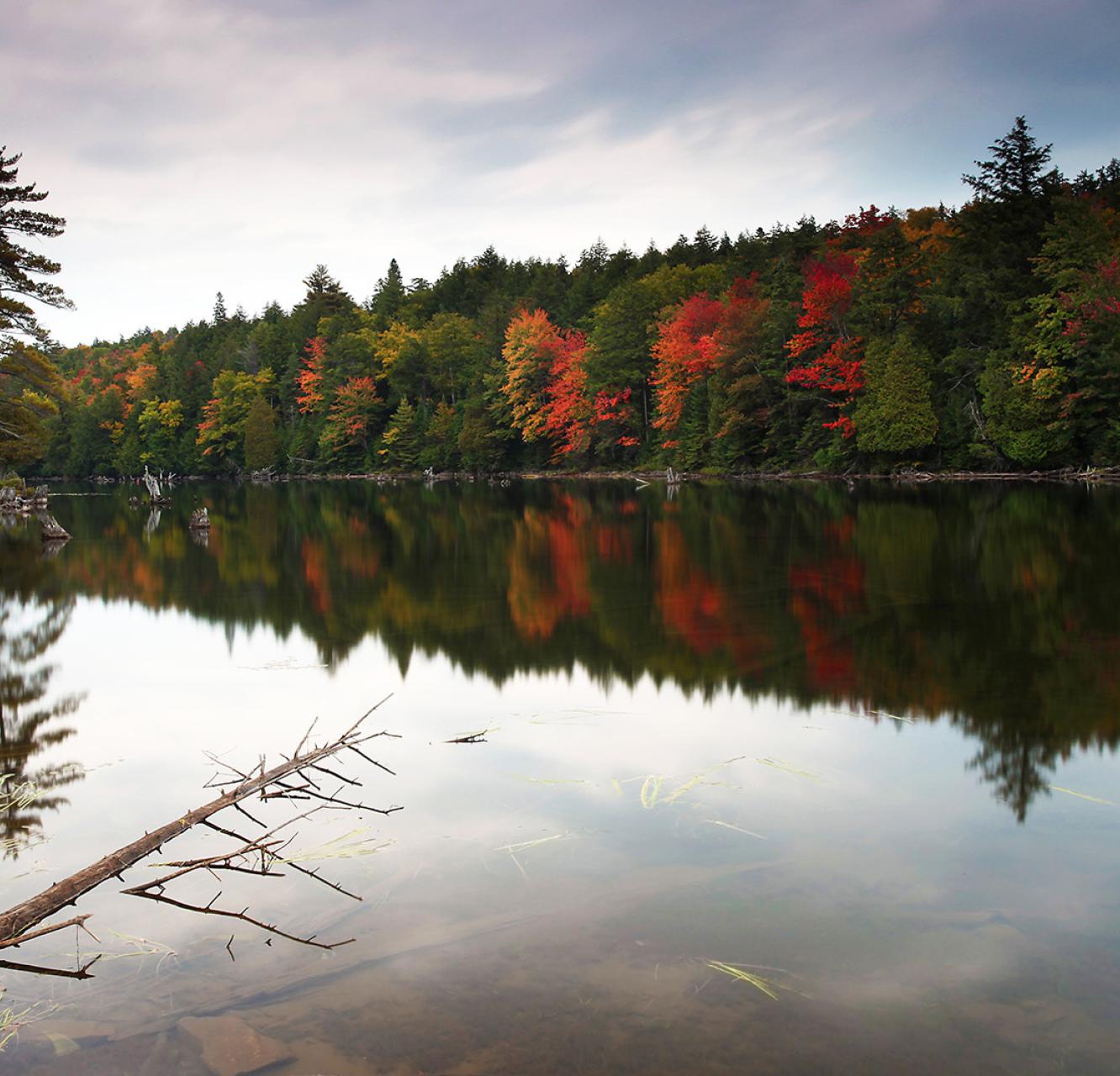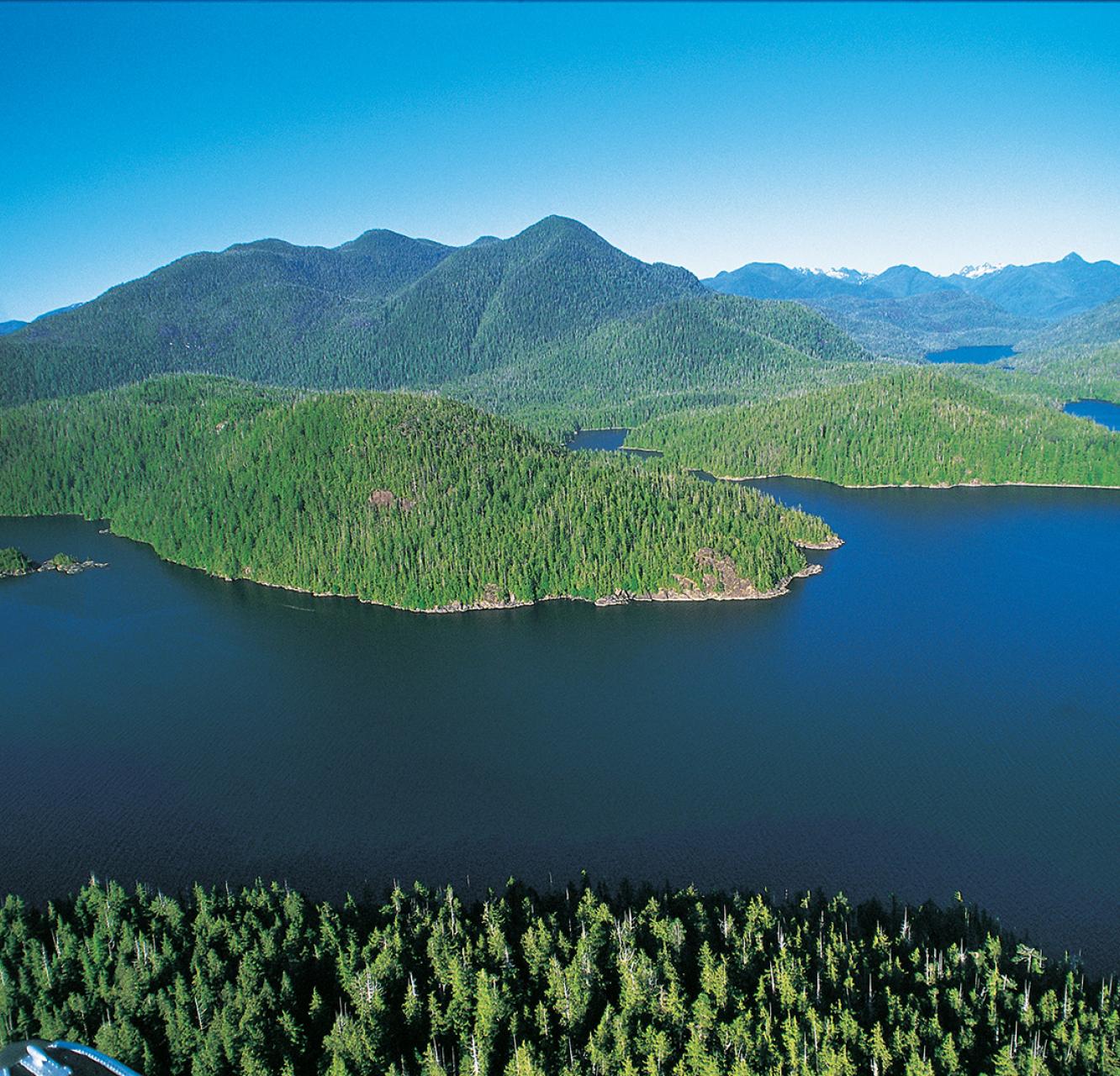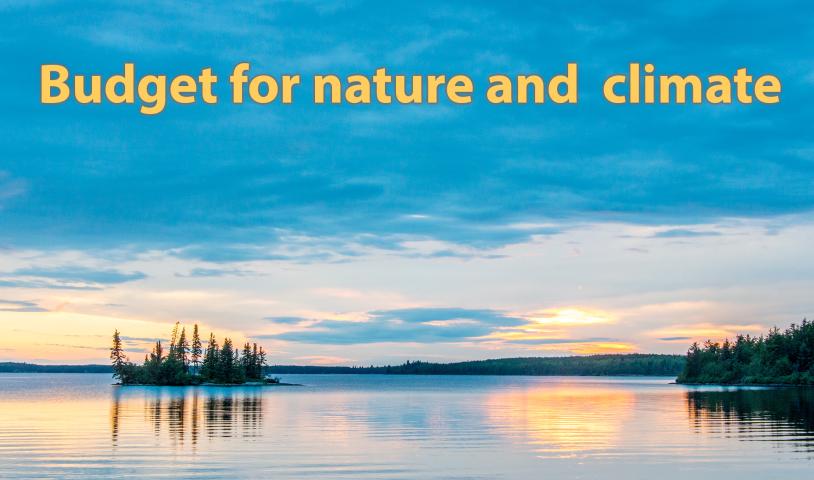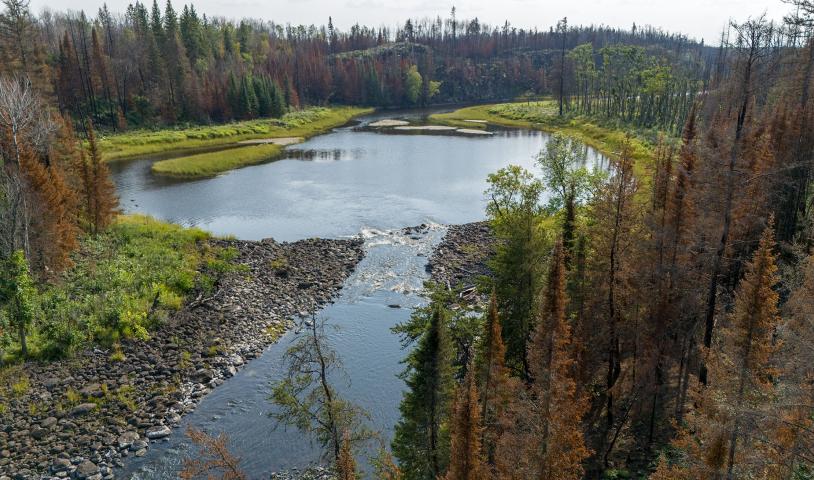“Bill baby, bill”: The spring trend of environment‑wrecking, Indigenous rights‑trampling legislation in Canada
Wednesday, July 9, 2025
With over 5,000 species at risk in Canada and wildfires raging across the country — fueled by ecosystem destruction and fossil fuel dependency — it’s clear that decision makers here prioritize resource extraction. This extractivism isn’t new for federal and provincial governments. However, fast-tracking environmental destruction, species extinction and Indigenous Rights violations has now become not just second nature, but the defining engine of Canada’s economy and identity.
Within the past two months, governments here have passed multiple bills designed to fast-track major industrial projects across the country. Bills 14 and 15 in B.C., Bill 5 in Ontario and the federal Bill C-5 signal a co-ordinated attempt to usher in a new era of Canadian extractivism that’s long driven environmental destruction, conflict and even human rights violations. This push mirrors the familiar old rhetoric of economic growth, now supercharged by political instability between Canada and the U.S.
But is Canada’s recent “elbows up” nationalism really about defending our economy? Or is it an opportunistic political move to make it easier to bulldoze ecosystems and trample Indigenous Rights in the name of corporate profit?
With only five years left in the federal government’s own goal to protect 30 per cent of lands and waters by 2030 (30x30), and with climate disasters intensify every year, Prime Minister Mark Carney and premiers across the country continue to lean on the same tired excuses to sacrifice environmental and Indigenous Rights protections in the name of the false economic promises.
We’ll dig into each bill in more detail, but first it’s important to recognize the pattern they all follow. Across the board, these bills:
- make it easier to approve industrial projects by cutting or eliminating environmental assessments and permit processes, as well as weakening Indigenous consultations and ignoring the right to free, prior and informed consent.
- centralize power in the hands of cabinet and the prime minister/premiers, allowing them to unilaterally approve projects they deem of interest.
- were rushed through the legislative process in a matter of weeks, with no meaningful consultation with Indigenous Nations.
- sparked widespread public opposition from environmental, Indigenous, legal and civil society groups and municipalities.
- are vague and broad in nature, leaving the door open for unchecked environmental destruction for current and future governments.
- prioritize short-term economic growth over land, water and Indigenous Rights protections.
The most dangerous and controversial elements of these bills revolve around cutting environmental and Indigenous Rights protections, which have always been deeply connected. Canada was established as a colonial state, built on stolen land, and resource extraction and attacks on the land here have always included oppression of the Nations stewarding it since time immemorial. With Bills 5, 15, 14 and C-5, we’re witnessing this violence in its most aggressive form in decades.
Indigenous People have not only been fighting for their rights since Canada was formed, but also for these lands, waters and non-human kin. As uninvited guests, we have a responsibility to join them in protecting what is truly valuable. Because now, these bills threaten all of it.
Bill 15
Touted by B.C. Premier David Eby and his government as a way to fast-track school and hospital construction, Bill 15, the Infrastructure Projects Act, gives ministers sweeping power to fast-track and bypass the environmental assessment processes for any “provincially significant” project. But the bill provides no clear criteria for what qualifies — leaving the door wide open to mines, LNG terminals, pipelines and other destructive megaprojects to be fast-tracked with minimal oversight.
This bill could allow the government to skip public consultation, sideline environmental protections and empower private consultants to green-light major projects. First Nations groups have raised serious concerns about the precedent it sets for bypassing consultation with titleholders for legislation and project approvals in the future.
Despite massive opposition from Indigenous Nations, environmental organizations, municipalities, legal societies and the public, Bill 15 was rushed through the legislature and passed on May 28. Premier Eby ignored repeated calls to scrap the bill or delay its passage to provide clarity and allow time for public and First Nations consultation. Instead of listening to the people whose territories and futures are at stake, Eby forced the bill through, disrespecting the voices and inherent rights of First Nations along the way.
Bill 5
Doug Ford’s Ontario government passed the contentious Bill 5 in early June, rushing it through despite substantial opposition from First Nations and environmental, labour and law groups.
Bill 5 gives the Ford government unprecedented powers to exempt projects and so-called “trusted proponents” from any and all provincial laws and municipal by-laws through the designation of “special economic zones” (SEZs). The legislation provides no criteria or limits for designating SEZs, thereby giving Ford and his cabinet sweeping power to replace the rule of law with arbitrary political favour-granting and cronyism.
Bill 5 also repealed the province’s Endangered Species Act, replacing it with toothless legislation that essentially abandons provincial protections for at-risk species and their habitat. It gives outsized power to ministers to decide whether or not to list and protect species and removes oversight from projects that will harm listed species and their habitat, shifting the onus onto proponents who stand to benefit.
Presented as a necessary economic tool to protect Ontario from US tariff threats, in reality, Bill 5 strips the public of basic democratic rights, including laws to protect the environment, community health and safety, and workers while also trampling the treaty and consultation rights of Indigenous Peoples.
Bill C-5
Ushered through the House of Commons and Senate in less than three weeks, Bill C-5, the Building Canada Act, grants sweeping powers to the federal cabinet to fast-track projects deemed to be in the “national interest.” In effect, it triggers Canada’s own “drill baby, drill” moment or as Prime Minister Carney has rebranded it, “build baby, build.” Federal regulatory agencies will no longer examine whether a project should be built — instead, politicians will be able to hit the green light, regardless of the environmental harm or public and Indigenous opposition.
Once a project is deemed of “national interest” by the cabinet and a yet to be announced new “super” minister, the government will consider it to have met all the requirements it needs to be approved. This means a handful of people will make the decisions that currently belong to in some cases several ministries and independent experts. Like Eby and Ford, Carney refused to clearly define what projects could be deemed in the “national interest,” but gave no indication the list would exclude destructive pipelines, mines, transmission lines and mega dams.
Key environmental protections — such as those under the Fisheries Act, Species at Risk Act (SARA), and other legislation — could be bypassed entirely, without analysis or accountability. If a project poses a risk of wiping out an endangered species, it will no longer be subject to a rigorous environmental assessment, nor will the proponent be held to the legal obligations outlined in SARA.
Even more concerning, these arbitrary pre-approvals would allow projects to skip the Impact Assessment Act’s planning phase, where public and Indigenous consultation typically occur. It remains unclear how the federal government intends to fulfill its legal duty to consult Indigenous Peoples, let alone uphold their rights to free, prior, and informed consent under the United Nations Declaration on the Rights of Indigenous Peoples (UNDRIP). As it stands, the bill violates all of the above.
Nations across the country have spoken up against it and have even called it “an attack on treaty rights.”
A dangerous trend with far-reaching consequences
Bills 5, 15 and C-5 passed against the backdrop of news headlines about devastating wildfires forcing thousands of people out of their homes and destroying vast swathes of forest. Parliament and provincial legislatures are now adjourned for the summer, but climate change-fueled extreme weather events aren’t, with parts of Canada now sweltering in brutal heat waves.
Climate change is our reality. What’s needed is a plan to shift away from reliance on fossil fuel extraction and the mass export of resources at the expense of intact ecosystems. Climate plans that actually reduce emissions should be fast-tracked, but instead they languish as Prime Minister Carney and premiers like Eby and Ford continue to cling to 19th century resource extraction as the only path to prosperity.
The foundation for a safe future in Canada must be built on conserving more nature in addition to reducing emissions. But in this spring’s build baby, build frenzy, protecting ecosystems and biodiversity has been pushed aside. Carney and Ford have ignored Canada’s 30x30 commitment completely, while Eby has made it clear that new protected areas are a secondary priority to a wave of new megaprojects.
For decades, the Wilderness Committee has campaigned to improve the lacking existing federal and provincial laws to protect biodiversity and habitat. Rushed-together, these bills enable governments to further weaken species and protection laws. They disrupt stability and create conflicts around land use and environmental conservation in Canada.
Finally, the original injustice at the foundation of Canada — one deeply intertwined with the environmental and climate issues we work on — is ongoing colonialism and the dispossession of First Nations, Inuit and Métis Peoples from their lands and waters. Indigenous groups across the country have staunchly opposed Bills 5, 15 and C-5. All three Bills should have failed based on that alone. We can’t create a brighter, safer future here by continuing to violate the inherent, constitutional and international rights of the people whose land we are on.
What’s next?
While these bills have already passed, the fight against them — and against the broader systems that put profit over life — is far from over. Our governments are using public fear of economic turmoil caused by U.S. trade policy to push forward a broad agenda of corporate-friendly deregulation.
In addition to Bills 5, 15 and C-5, the federal and provincial governments have pushed forward other legislation that infringes on rights and concentrates power with those who already have it. Notably, Bill C-2 is likely the most anti-immigrant bill proposed in modern Canadian history. As we fight for environmental justice and acknowledge the connection between climate change, environmental destruction, migrant justice and human rights, it’s one we need to strongly oppose as well.
Fear-based politics and rushed legislation are an attempt to make us feel hopeless and powerless to say no to these harmful decisions. But we do have that power, and we join others who also refuse to acquiesce. Instead of the inaction politicians like Carney, Eby and Ford are counting on, Indigenous leaders have promised a “summer of resistance” against Bills 5, 15 and C-5, and some of the megaprojects these Bills are paving the way for.
It’s up to us to decide what side of history we’ll be on. The Wilderness Committee opposes the legislation passed this spring because these bills touch almost every campaign we work on. We’ll continue fighting against them through our advocacy for forests, rivers, wildlife, climate policy and much more. We didn’t back down when conservative Prime Minister Stephen Harper pushed through omnibus legislation aimed to override opposition more than a decade ago, and we won’t back down now.
It’s easy to feel overwhelmed by the chaos humanity is facing right now. Things are sure looking bleak, and hope can feel like a distant feeling. But the antidote to despair is always community. Building our momentum this summer is more important than ever.
Join us at an event or rally, or use our action tools to raise your voice against federal and provincial politicians, urging them to stop ignoring their responsibilities to the lands, water and people this web of life supports. Let’s fight for what’s truly worth protecting.
